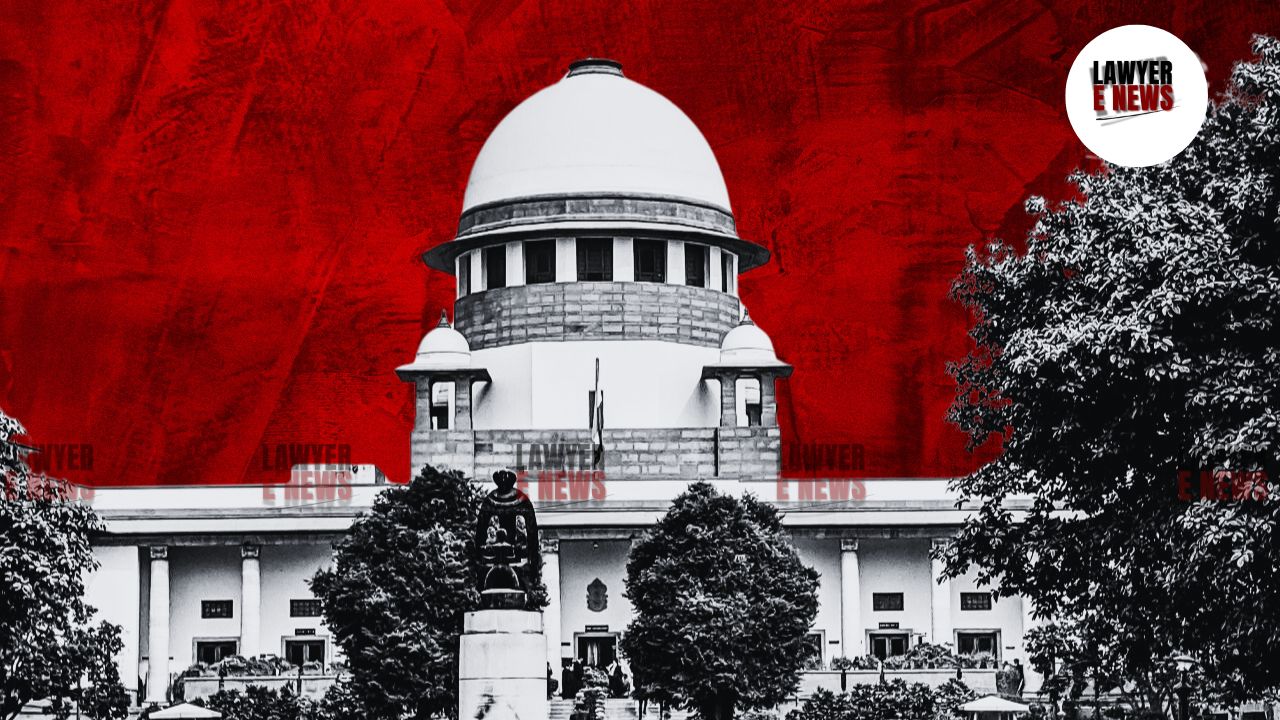-
by Admin
15 February 2026 5:35 AM



Once a candidate qualifies the suitability test, their legitimate right to promotion cannot be denied on account of lower placement in a merit list under the 65% promotional quota - Supreme Court of India addressing the scope of promotions under the 65% merit-cum-seniority quota in the Jharkhand Superior Judicial Service. The Court ruled that promotions under this quota cannot be based on a comparative merit list and must adhere strictly to suitability as defined under the governing rules.
Suitability, Not Comparative Merit, Governs the 65% Promotional Quota
Relying on its recent judgment in Ravikumar Dhansukhlal Maheta v. High Court of Gujarat (2024 SCC Online SC 972), the Supreme Court clarified that the suitability of candidates for promotion under the 65% quota must be assessed individually and not through a merit list. The Court emphasized:
"Comparative merit assessment obliterates the distinction between promotions under the 65% merit-cum-seniority quota and the 10% promotion quota based strictly on merit. Suitability under the 65% quota is distinct and must not be equated with competitive examinations."
The appellants, judicial officers in Jharkhand, challenged a 2019 notification promoting their juniors to the post of District Judge based on a merit list, despite the appellants qualifying the suitability test under the Jharkhand Superior Judicial Services (Recruitment, Appointment, and Condition of Service) Rules, 2001.
The dispute revolved around the following:
The appellants argued that the governing rules did not permit the preparation of a comparative merit list for the 65% promotional quota. They contended that once candidates had successfully cleared the suitability test by scoring at least 40 marks as required, they were eligible for promotion without any further comparative ranking. Despite this, the appellants were excluded from promotion, while their juniors were promoted solely on the basis of higher placement in the merit list. The Jharkhand High Court dismissed their writ petition in 2022, leading to the present appeal.
The Supreme Court addressed whether the merit-cum-seniority principle under the 65% quota allowed for comparative merit assessment. It observed that promotions under this quota must adhere to suitability alone, without comparative ranking, as prescribed by the Rules. The Court ruled:
"Promotions under the 65% quota must be determined solely by individual suitability. A merit list undermines the very essence of the merit-cum-seniority principle, blurring the distinction between suitability-based promotions and merit-based competitive examinations."
The Court further examined whether the appellants were improperly denied promotions despite qualifying the suitability test. It noted that once candidates achieve the minimum required score, they cannot be deprived of promotion based on comparative merit. The Court stated:
"Having successfully cleared the suitability test, the appellants could not have been deprived of their legitimate right to promotion on the basis of a merit list prepared for comparative assessment."
Lastly, the Court considered whether the appellants were entitled to retrospective promotion and seniority. It concluded that the appellants were entitled to notional promotion and seniority from the same date as their juniors who were promoted under the 2019 notification. The Court clarified that while the appellants would receive all consequential benefits such as seniority and increments, they would not be entitled to back wages.
“Suitability Test Evaluates Individual Merit, Not Competitive Merit”
The Court emphasized the principles set out in Ravikumar Dhansukhlal Maheta and observed:
"The suitability test under the 65% promotional quota is not intended to create a merit list. It is designed to ensure that candidates meet the required standards for promotion. Comparative merit is irrelevant in this context."
“Comparative Merit Assessment Undermines the 65%-10% Distinction”
The Court reiterated that adopting a merit-based ranking system for the 65% quota blurs the distinction between this quota and the 10% quota, which is based on a competitive examination. It stated:
"If promotions under the 65% quota are based on comparative merit, it would render the 10% quota redundant and defeat the purpose of the Rules."
“Rightful Promotions Cannot Be Denied Once Suitability Is Established”
The Court held that the appellants, having successfully cleared the suitability test, could not be deprived of their legitimate right to promotion:
"Promotions must be granted to all candidates who meet the suitability criteria, irrespective of their relative placement in a merit list."
The Supreme Court allowed the appeal and issued comprehensive relief to the appellants. It granted them retrospective notional promotion to the post of District Judge, effective from May 30, 2019, the date on which their juniors were promoted under the disputed notification.
The Court further held that the appellants were entitled to all consequential service benefits, including seniority, increments, and notional pay fixation, from the same date. However, it clarified that they would not receive back wages for the intervening period.
The judgment also quashed the Jharkhand High Court's 2022 decision, which had dismissed the appellants’ writ petition.
This judgment reinforces the distinction between suitability-based promotions and merit-based competitive examinations in judicial services. By invalidating the use of merit lists for the 65% promotional quota, the Supreme Court has upheld the merit-cum-seniority principle and ensured fairness in promotions for judicial officers.
In its ruling, the Court underscored the importance of adhering to statutory rules and clarified that promotions under suitability-based quotas should be free from unnecessary comparative assessments. The judgment is expected to have far-reaching implications on promotion policies for judicial officers across India.
Date of Decision: January 15, 2025
